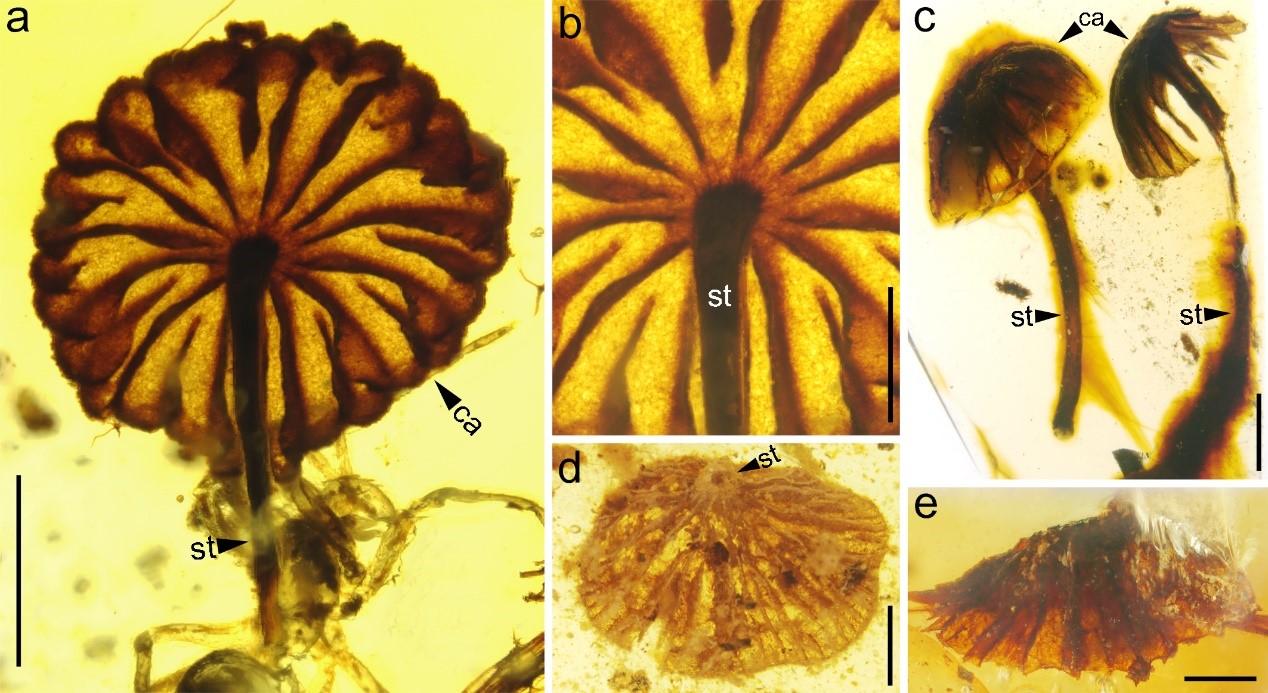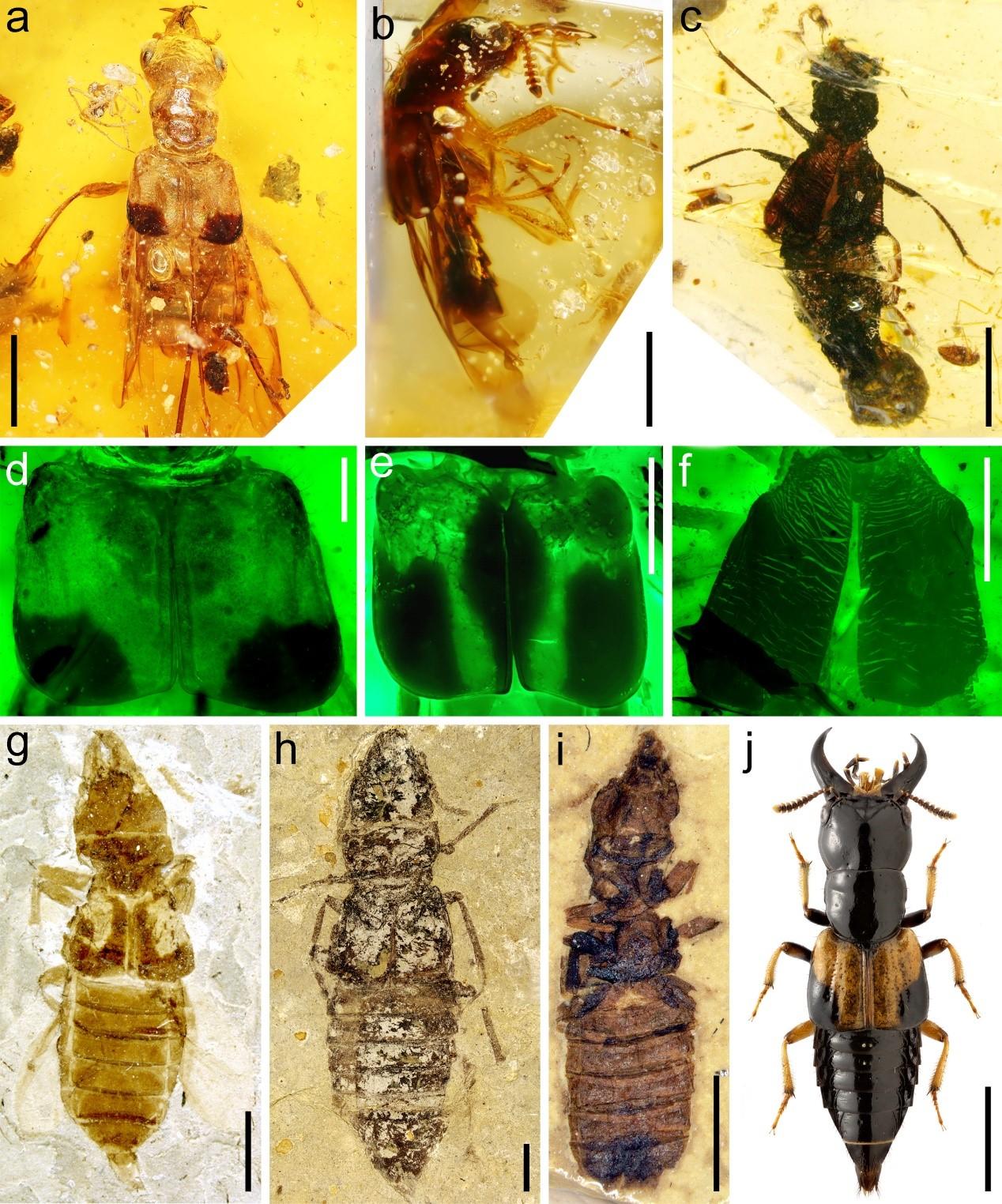99-million-year-old mushrooms found perfectly preserved in Burmese amber
Mushroom-eating beetles from 125 million years ago were also found

Your support helps us to tell the story
From reproductive rights to climate change to Big Tech, The Independent is on the ground when the story is developing. Whether it's investigating the financials of Elon Musk's pro-Trump PAC or producing our latest documentary, 'The A Word', which shines a light on the American women fighting for reproductive rights, we know how important it is to parse out the facts from the messaging.
At such a critical moment in US history, we need reporters on the ground. Your donation allows us to keep sending journalists to speak to both sides of the story.
The Independent is trusted by Americans across the entire political spectrum. And unlike many other quality news outlets, we choose not to lock Americans out of our reporting and analysis with paywalls. We believe quality journalism should be available to everyone, paid for by those who can afford it.
Your support makes all the difference.Astonishingly well-preserved mushrooms that were trapped in amber some 99 million years ago have been discovered in a museum collection in China.
The researchers also found similarly pristine beetles that are 125 million years old, again encased in amber, which is clear tree resin that sets hard then fossilises over time.
The oldest amber mushroom ever found is only a million years older than the newly described examples, which were found among 111,000 pieces of amber from Burma, in the Nanjing Institute of Geology and Palaeontology in China.
The researchers appeared taken aback by how well the latest discoveries were preserved and also how similar to modern mushrooms they were.

“Most [mushroom] fruiting bodies are ephemeral, and their fossil record is limited,” they wrote in the journal Nature Communications.
“The discovery of four mushroom forms, most with a complete intact cap containing distinct gills and a stalk, suggests evolutionary stasis of body form for 99 million years.”
A statement issued by the Chinese Academy of Sciences about the discoveries said the mushrooms were “very well-preserved”.
The mushrooms are among the oldest ever found in amber. The earliest-known so far were dated to just a million years earlier.
A 440-million-year-old fossil of a fungus that looked like a mushroom has also previously been discovered in Scotland and Sweden.
The rove beetles described in the journal were found in amber from Burma and north-eastern China.
The science academy said the beetles appeared to have been specially adapted to eat mushrooms.
“Interestingly, the mouthparts of these rove beetles, including enlarged mandibles, match those of modern [beetles] and indicate a mushroom feeding habit,” it said.
“Their finding displays an ancient ecological community assembling diverse mushrooms and beetles.”
Join our commenting forum
Join thought-provoking conversations, follow other Independent readers and see their replies
Comments